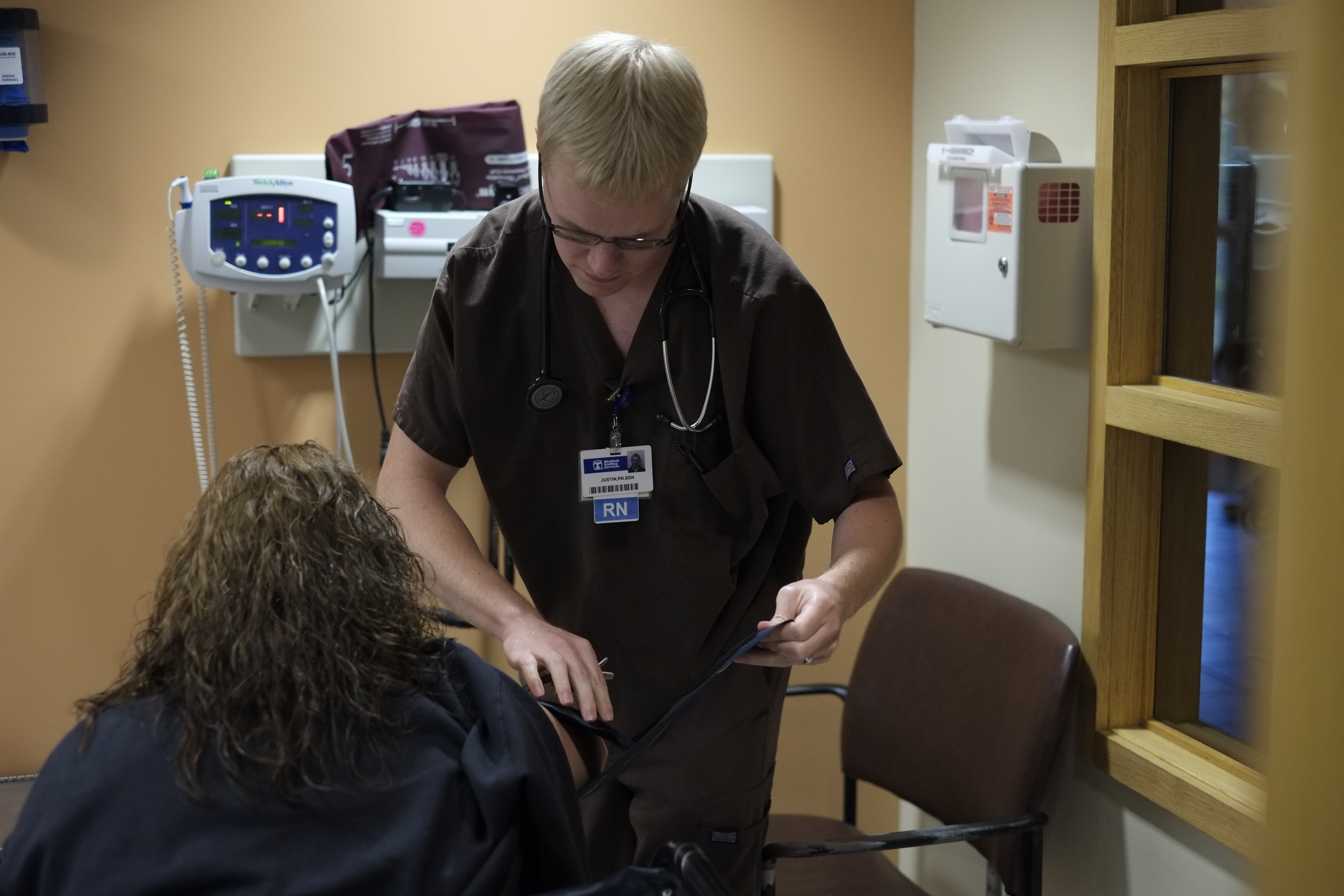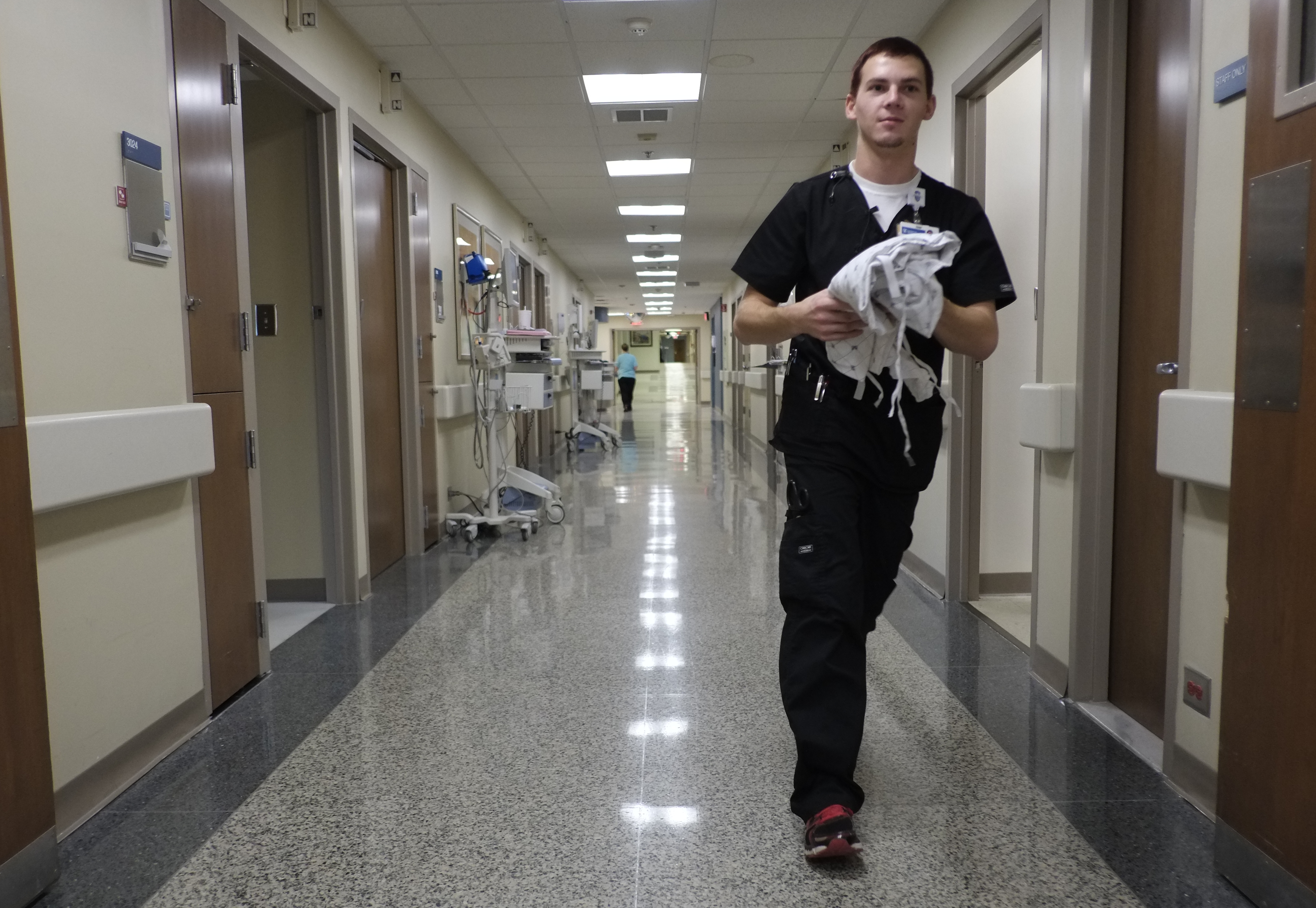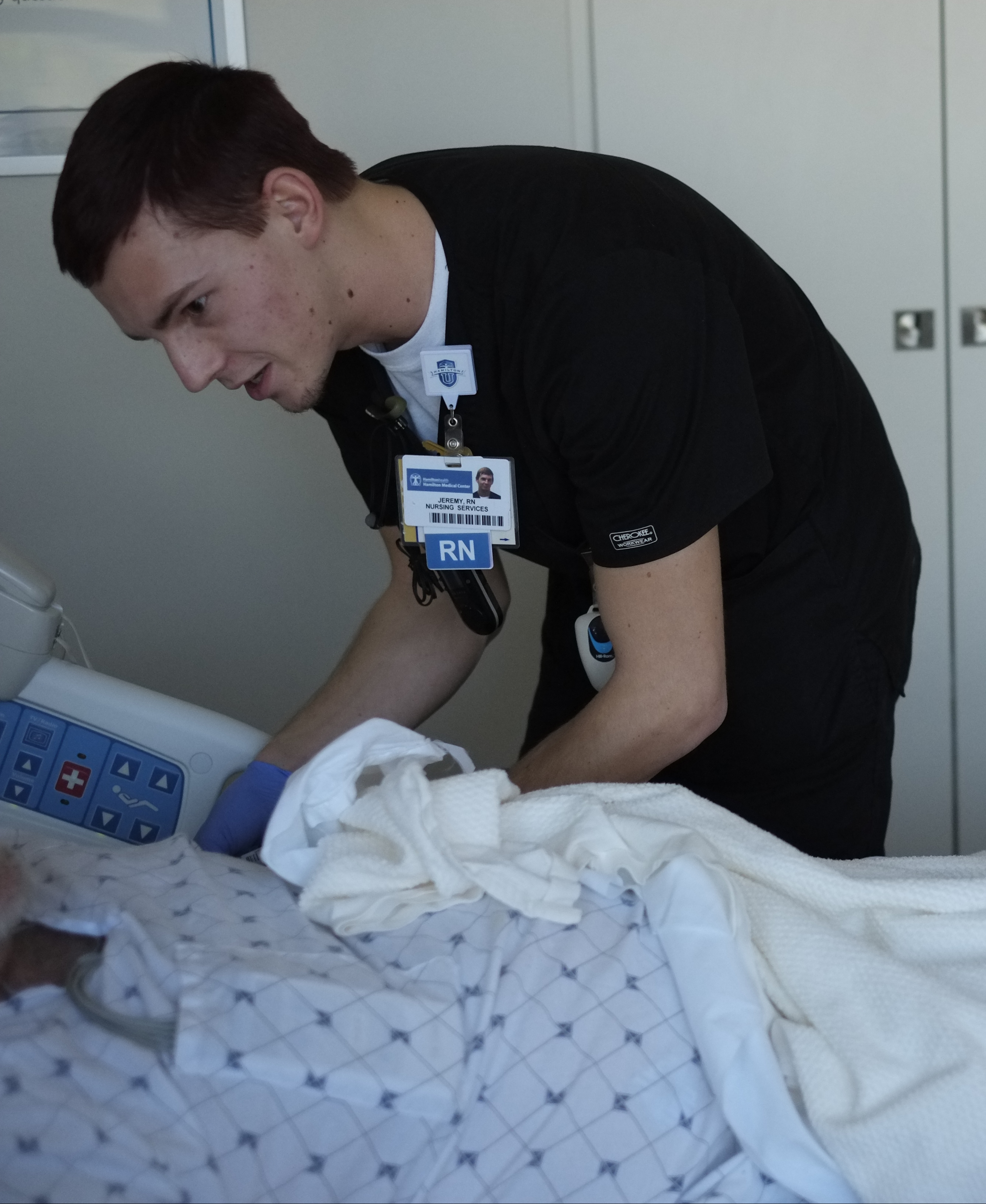BY THE NUMBERSThe number of males in local nursing programs in 2013:Dalton State College: 28 males of a total 183 students, or 14 percent.Chattanooga State Community College: 47 males of a total 335 students, or 14 percent.Cleveland State Community College: 5 males of a total 69 students, or 7 percent.Southern Adventist University: 156 males of a total 651, or 24 percent.University of Tennessee at Chattanooga: 92 males of a total 506 students, or 18 percent.Source: School records
There are career changes ... and then there are career changes.
For the last 14 years, Mike Allen has been a nurse and today is director of the emergency department at Hamilton Medical Center in Dalton.
Prior to that, he was a sniper in the United States Army.
"It's a 180 leap, isn't it?" the 45-year-old says.
Allen says he had worked with several medics during his military career and always had a lot of respect for what they did. And both the military and nursing have something in common that appealed to him.
"They are both serving man," he says.
It's a sentiment echoed by several male nurses working in the Chattanooga area and one of the reasons they say they entered a field that has seen more males walking through its doors. The number of registered male nurses in the U.S. tripled from 2.7 percent in 1970 to 9.6 percent in 2011 -- 294,063 out of 3,063,162 -- according to the U.S. Census Bureau, and area nurses and academics say there are multiple reasons for the jump.
First, they say, the stigma surrounding a male working in a traditionally female vocation is all but gone. Secondly, certain health professions -- like nursing -- are essentially recession-proof. Third, there are many more fields within nursing than ever before, so men interested in the field can move beyond the short-sighted perception that nurses only empty bedpans, give shots and dispense pills.
Yes, those tasks are still part of the job, but nursing offers positions in teaching, management, research and insurance, among others, in addition to more traditional patient-care options.
"If you are looking for a profession to weather any storm, nursing is a good one," says Chris Smith, interim director of the University of Tennessee at Chattanooga School of Nursing. "There has also been a change in attitude toward nursing. It is part of an interprofessional team now. Health care is no longer driven solely by the physician. There has been a huge move towards taking care of patients as a team."
And there are certain female-related exams or tests in which the patient is more comfortable with a female nurse, Allen says.
Dr. Gina Kertulis-TarTar, interim dean of health professions at Dalton State College, says the shift in attitudes toward male nurses has not just been in the professional ranks.
"It has become more acceptable for the patients to be seen by a male, and there are so many more opportunities," she says. "It is a good stepping stone, but there are increased opportunities for nurses in general."
According to Allen, having both male and female nurses on staff is important. While either can do the job, male nurses tend to better handle some of the more physically demanding parts of the job, such as fending off a violent patient on drugs or with mental issues, he says. One male nurse at Hamilton recently had his leg broken by a mental patient.
Both Kyle Parton, 30 and Justin Kirkpatrick, 26, chose nursing because of the many options available to them. When he first started, Parton planned to continue on into medical school, but he fell in love with nursing. Today he is a clinical resource nurse at Hamilton Medical Center with an interest in teaching. "The possibilities [in nursing] are endless," Parton says.
Kirkpatrick is a staff nurse in the emergency department at Hamilton Medical Center, but he plans to go back to school to become a nurse practitioner, which requires a master's degree. NPs can diagnose medical problems, prescribe medications and order treatments.
"I know I will always have a job," he says.
Bill Wade, 54, spent his 20s moving from job to job before becoming a U.S. postman, which he did for 16 years. Looking into the future, he saw how the Internet would impact traditional mail service, so he started looking for a new career. He'd always been interested in the medical field and now is a nurse in surgical telementry, working with patients who must have constant heart monitoring, at Memorial Hospital in Chattanooga.
"I have a passion for nursing," he says. "I like this and eventually hope to get into management, training other nurses."
Vernon Gipson, 51, was an orderly in the Army for many years and now is director of surgical services at Hamilton Medical Center. Nursing is all he's ever known, he says.
"I love it. I can't think of anything else where you are with people for the whole birth-to-death process," he says. "We are with people at their most critical times."
Nursing is also financially rewarding. Starting pay for nurses at Hamilton Memorial is $19 an hour. Pull the weekend shift and you can tack on another $7 an hour and, if you work weekend nights, it's another $3 an hour. Overtime is time and half.
If that doesn't appeal, you can opt into a traveling nurse program, where you spend several weeks away on loan to a health-care facility in another city or state. Pay for those jobs usually lands between $33 and $40 an hour, but it can be more.
Whether you're male or female, stress and the fast pace are two of the biggest challenges associated with the job, the male nurses say. So is dealing with family members who sometimes think they know better than the nurse -- or the patient -- and try to dictate what care they believe is needed.
For Jeremy Stansell, a bedside nurse on the cardiac floor at Hamilton Medical Center, his age is an issue. At 21, he sometimes must convince patients and their family that he is perfectly capable of doing his job. Stansell went right into a two-year nursing program out of high school and has been a nurse for four months.
"Sometimes the demands from the family are greater than what the patient needs," Stansell says. "And for me, because I am so young, they always ask, 'How old are you?'"
Contact staff writer Barry Courter at bcourter@timesfreepress.com or 423-757-6354.



